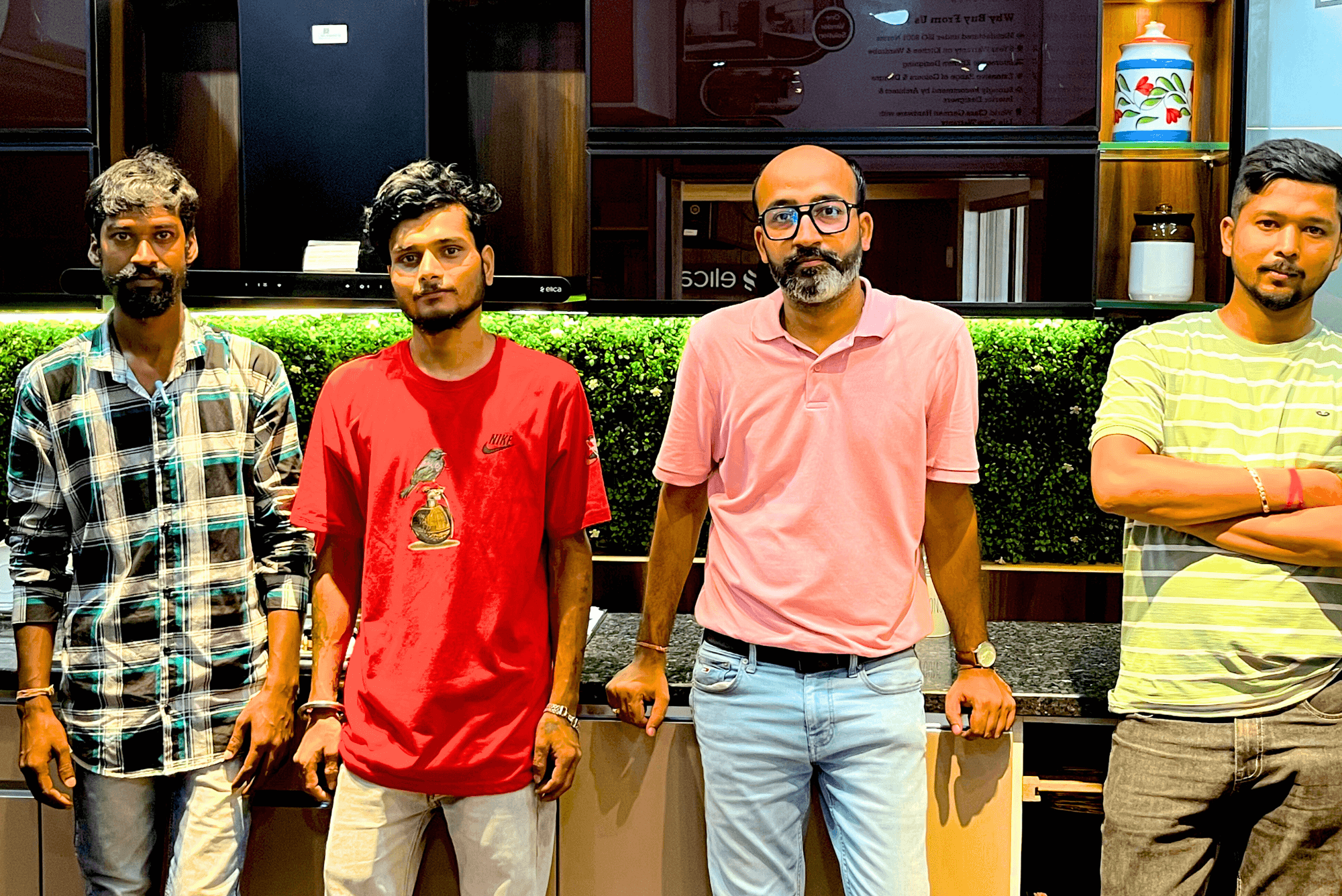
At EPIC World, we see that real, ground-level insight into customer behaviour isn’t just informative - it’s transformative. A recent field visit our team went on highlighted a fundamental, yet often misunderstood, factor: trust.
Recently, our team visited Guwahati and met Surya, who runs a kitchen‑appliance store. Originally from the district of Dhubri, he began his entrepreneurial journey with digital signatures but quickly saw the barriers to meaningful scale. A conversation with his uncle in Jaipur, a seasoned veteran in the modular kitchen and appliance sector with an established network, provided an impetus for change. The pre‑existing trust enabled him to step into a new business with both guidance and confidence. After operating in partnership for three years, he launched his own venture. Today, his enterprise thrives, his wife (a qualified Chartered Accountant) plays a key role, and together they support not just the business, but a wider network: carpenters, traders, and store workers. Surya doesn’t just aim to grow his business - he aspires to “generate wealth for the people around me.” He embodies what we call an affluent Entrepreneurial Household (EH).
Surya’s story foregrounds a common misperception: that Entrepreneurial Households are binary. In reality, they exist along a spectrum, ranging from nascent and emerging businesses to established and affluent enterprises like Surya’s. While their income levels or access to formal resources might differ, they share two powerful intangibles: upward ambition and resilience against shocks. These households, regardless of their stage, form the very bedrock of local economies, often operating within informal networks where trust is the primary currency.
Trust, in these ecosystems, is neither abstract nor incidental - it’s foundational. How do we translate an intangible human concept and integrate it into scalable market solutions? When we acknowledge that most Entrepreneurial Households initiate their ventures based on a deeply personal trust factor, often with family or close friends, it fundamentally reshapes our strategic approach. This is especially relevant as we expand our lens to communities, regions, or businesses striving for broad customer reach. The nature of trust, its role in enabling decisions and fostering relationships, remains consistent regardless of scale. We anchor our approach on this immutable principle.
This is exactly what gives us conviction and why we advocate phygital business models, a strategic imperative highlighted in our Reimagining Local Economies report. Successful Entrepreneurial Household-focused businesses adeptly blend a physical presence with robust digital capabilities, forming a hybrid model that cultivates trust while enabling unprecedented scale. This approach acknowledges that purely digital models frequently fall short in markets where personal rapport is paramount. These models, and many businesses, often underestimate the importance of building and maintaining networks of trust in serving these customers. At the same time exclusively physical models often struggle with the economics of widespread reach.
Phygital models create structured customer journeys, beginning with high-touch interactions that foster initial trust, then gradually transitioning to increasingly digital engagement as that trust matures. A prime example is SarvaGram, which employs local representatives, known as ‘Sarvamitras’, as the essential human interface in their high-tech distribution strategy. Just as Surya’s entrepreneurial journey began with the established trust in his uncle, these Sarvamitras build crucial, pre-existing credibility within their communities, allowing technology platforms to manage processing and analytics seamlessly in the background. These models are inherently designed to accommodate varying levels of digital readiness and infrastructure across diverse regions, preventing the exclusion of less connected communities. Moreover, the synergy of physical and digital interactions yields richer customer insights, capturing both formal transaction data and the vital, informal contextual information that algorithms alone might miss.
We back phygital models because we know this blend works - it builds on that unchanging human need for trust, whether it’s a single store in Guwahati or a regional distribution network.



